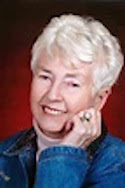“I started writing poetry when I was
about 13.” – Al Purdy
Canadian free verse poet Purdy's
writing career spanned 56 years. His works included a remarkable 39 books of
poetry, plus 1 novel, 2 volumes of memoirs and 4 books of correspondence. He
has been called Canada's "unofficial poet laureate” and "a national
poet in a way that you only find occasionally in the life of a culture."
Purdy was born on Dec. 30, 1918, and
died at age 81 while still writing. His
death bed, in fact, was cluttered with his books and papers. He was a bit chagrined by the fact that his
publisher was planning a “collected works” version of his poems. “A ‘collected poems' is either a gravestone
or a testimonial to survival,” he said.
Here, from Beyond Remembering – The collected poems of Al Purdy
(published shortly after his death) – and for Saturday’s Poem – is Purdy’s
Listening to Myself
I see
myself staggering through deep snow
lugging blocks of wood yesterday
an old man
almost falling from bodily weakness
— look down on myself from above
then front and both sides
white hair — wrinkled face and hands
it's really not very surprising
that love spoken by my voice
should be when I am listening
ridiculous
yet there it is
a foolish old man with brain on fire
stumbling through the snow
— the loss of love
that comes to mean more
than the love itself
and how explain that?
— a still pool in the forest
that has ceased to reflect anything
except the past
— remains a sort of half-love
that is akin to kindness
and I am angry remembering
remembering the song of flesh
to flesh and bone to bone
the loss is better
lugging blocks of wood yesterday
an old man
almost falling from bodily weakness
— look down on myself from above
then front and both sides
white hair — wrinkled face and hands
it's really not very surprising
that love spoken by my voice
should be when I am listening
ridiculous
yet there it is
a foolish old man with brain on fire
stumbling through the snow
— the loss of love
that comes to mean more
than the love itself
and how explain that?
— a still pool in the forest
that has ceased to reflect anything
except the past
— remains a sort of half-love
that is akin to kindness
and I am angry remembering
remembering the song of flesh
to flesh and bone to bone
the loss is better
Share A Writer’s
Moment with a friend by clicking the g+1 button below.













